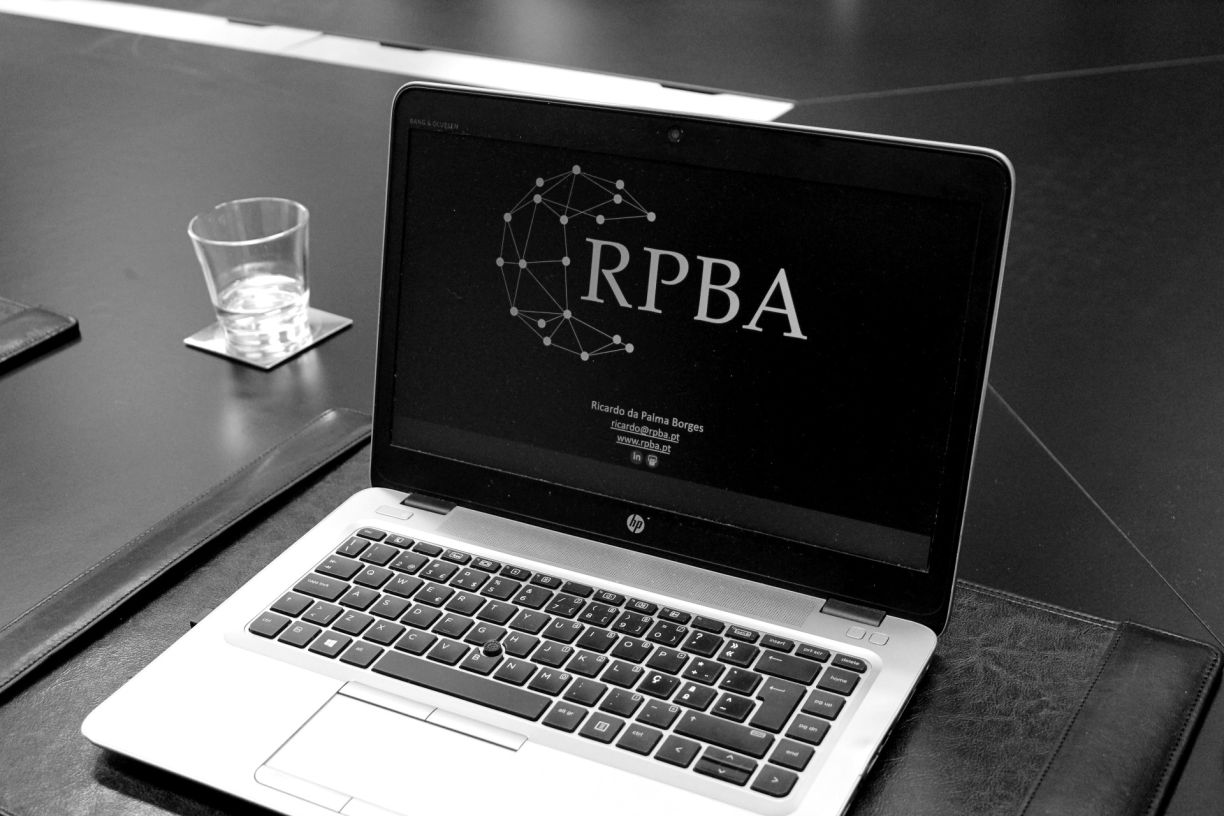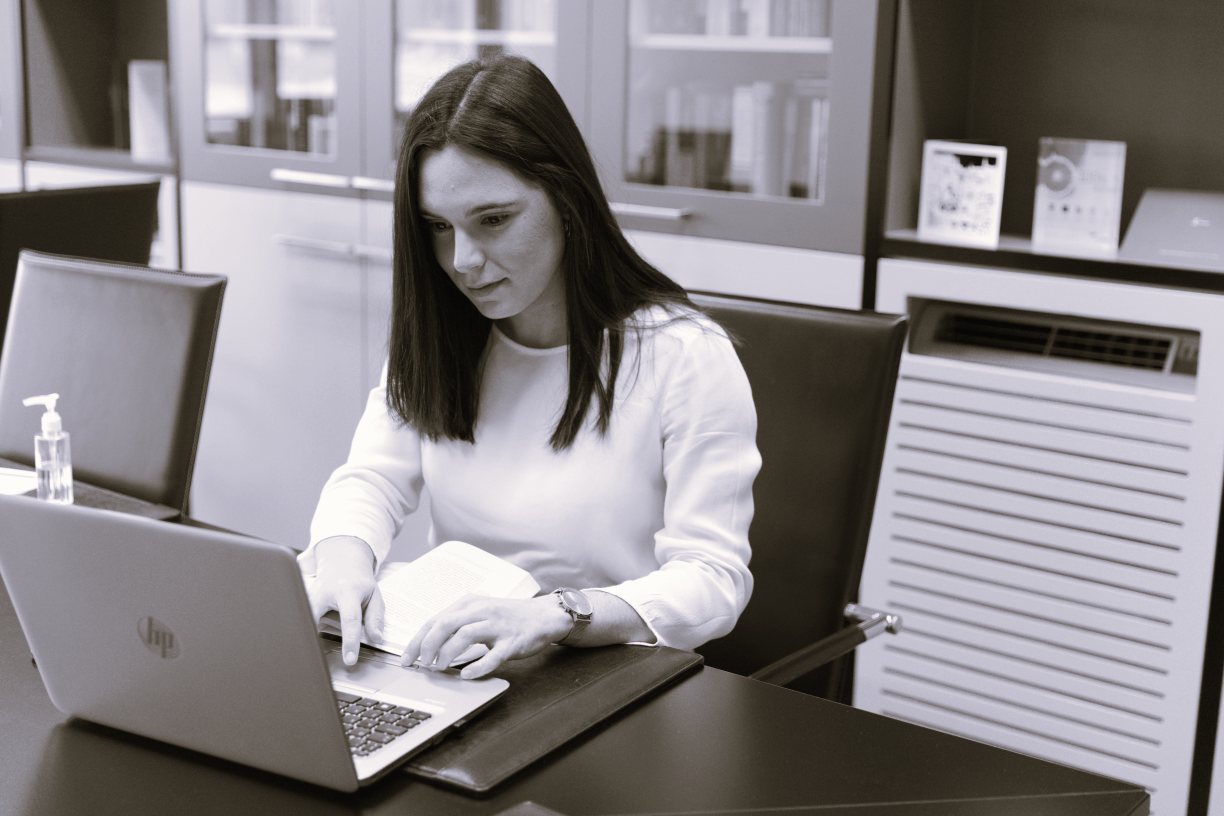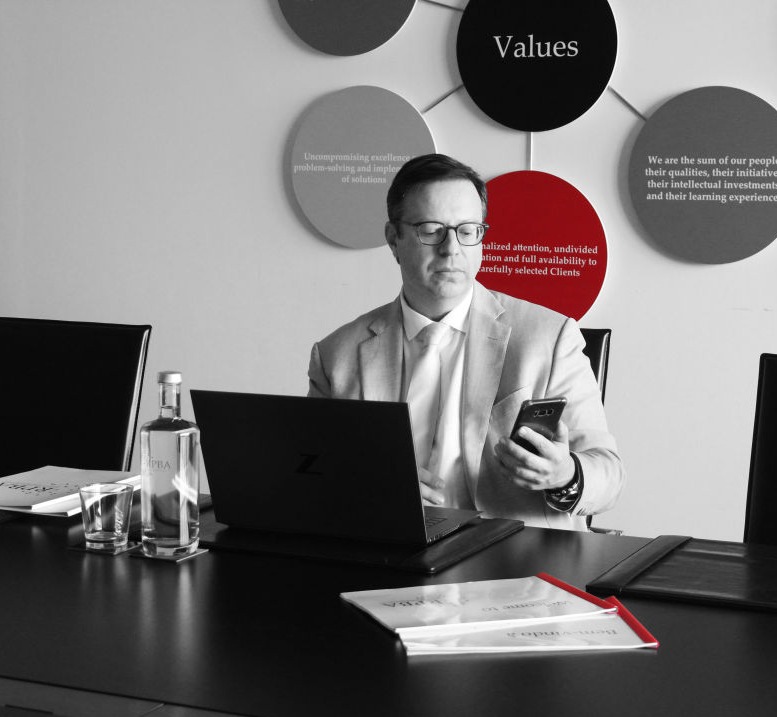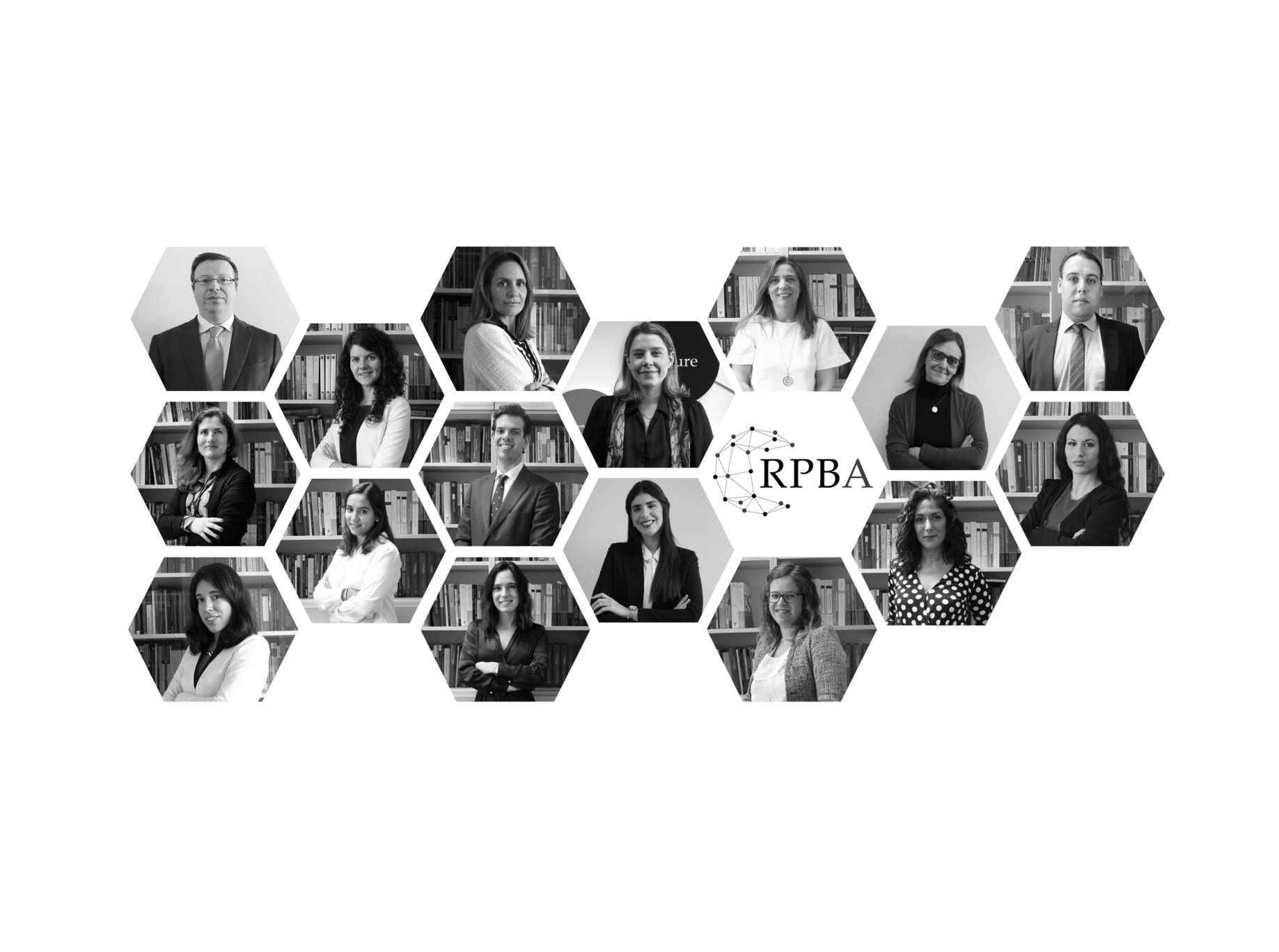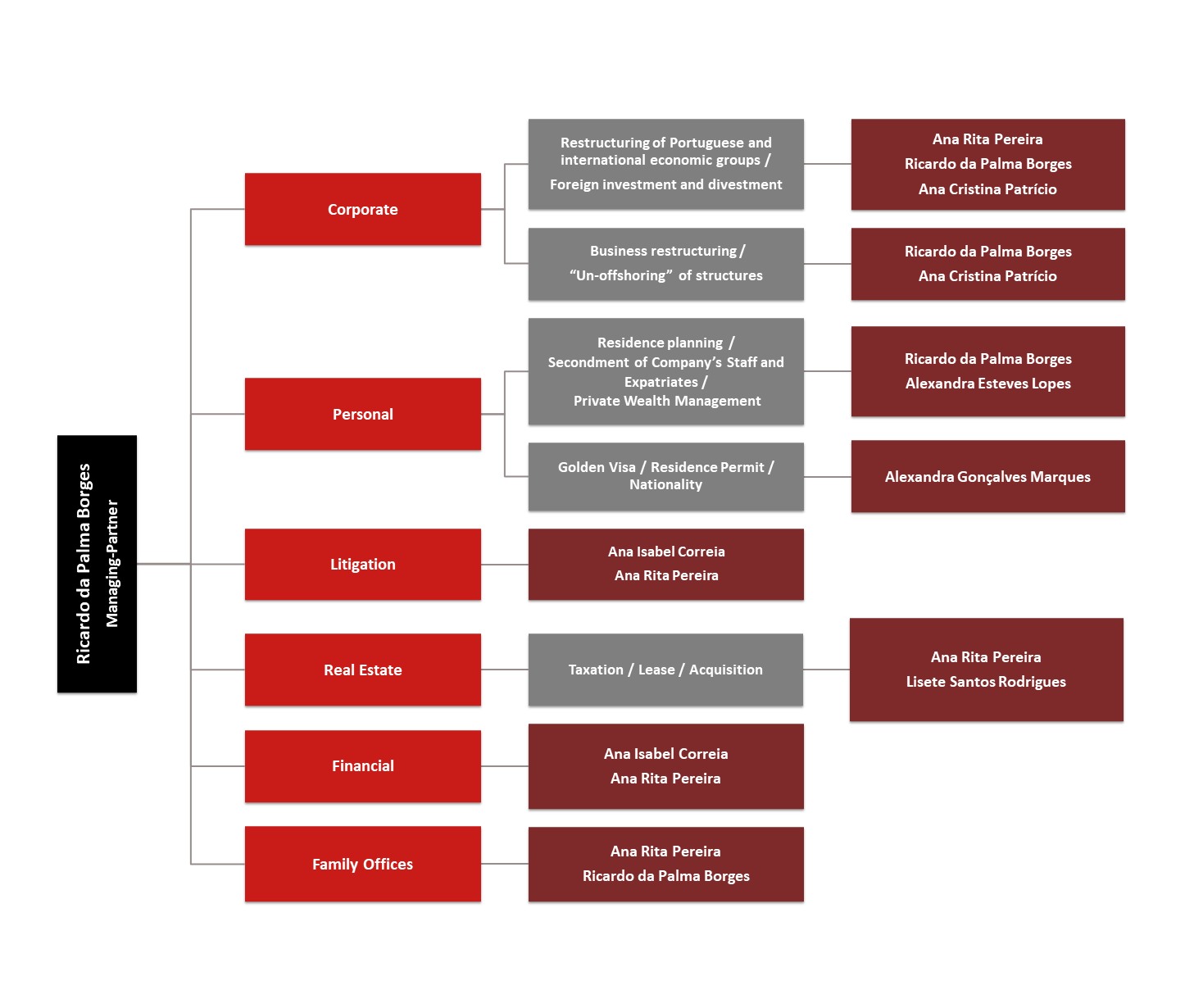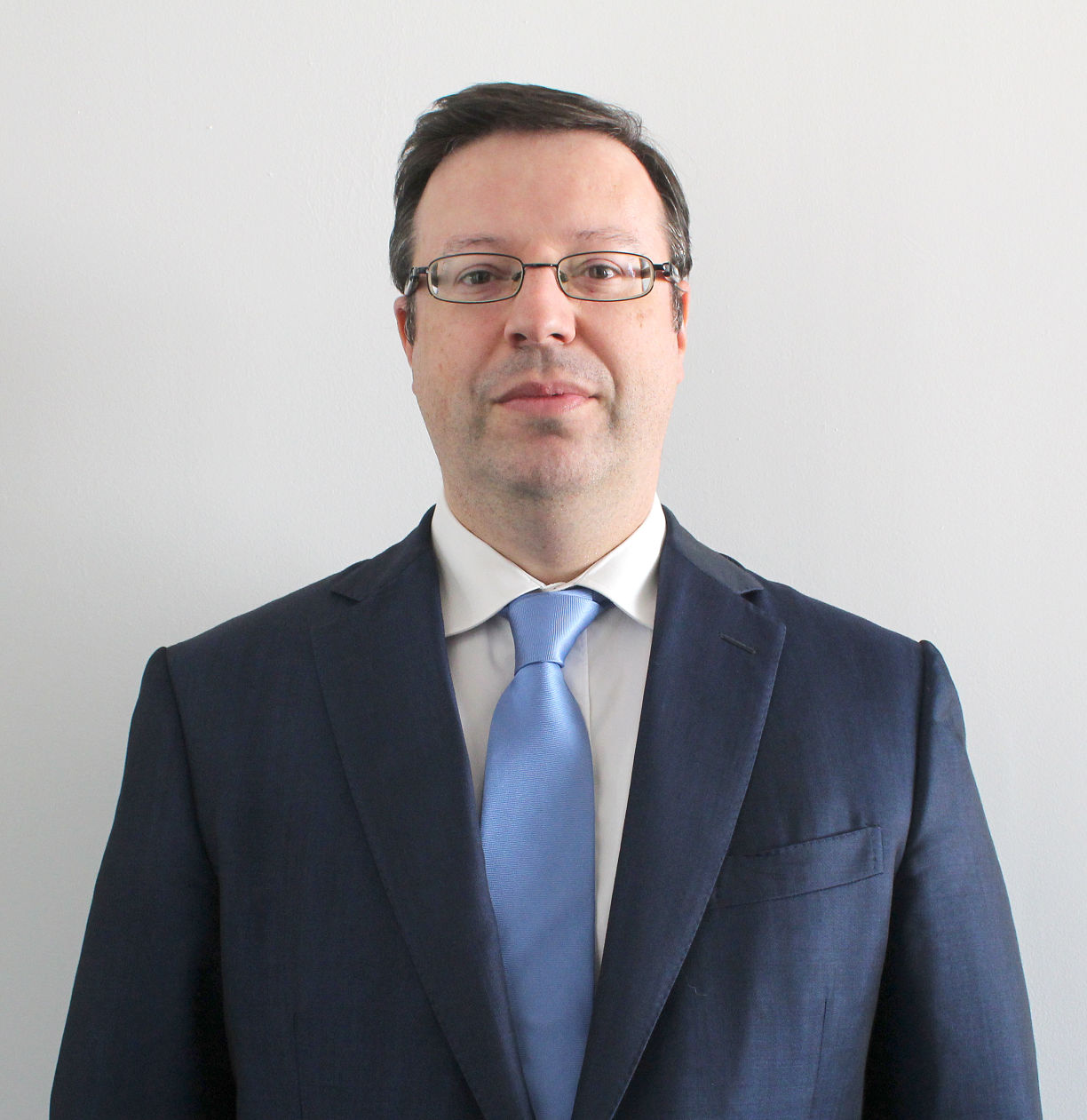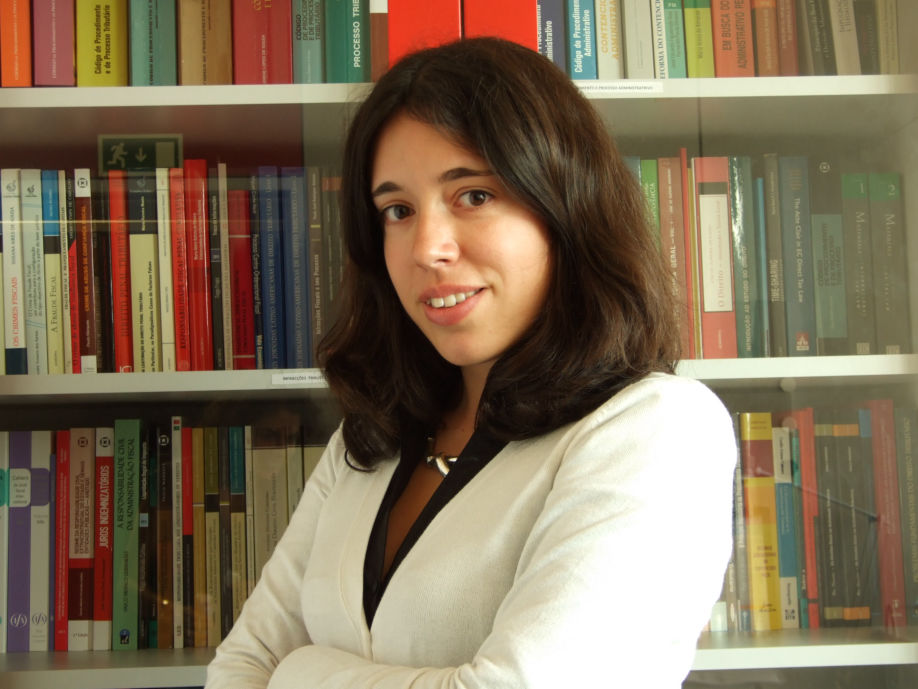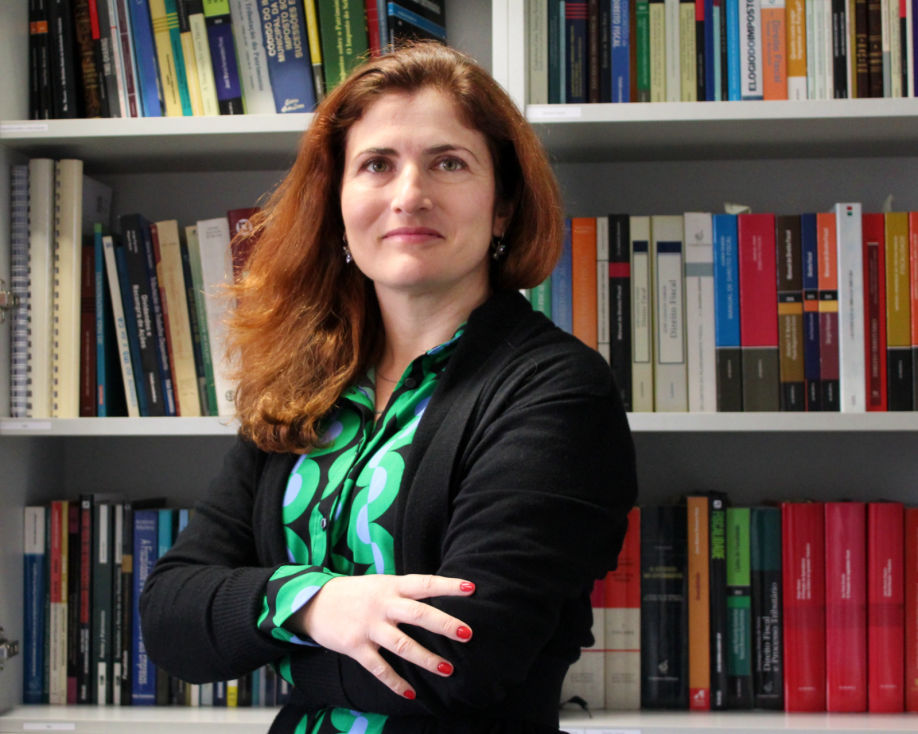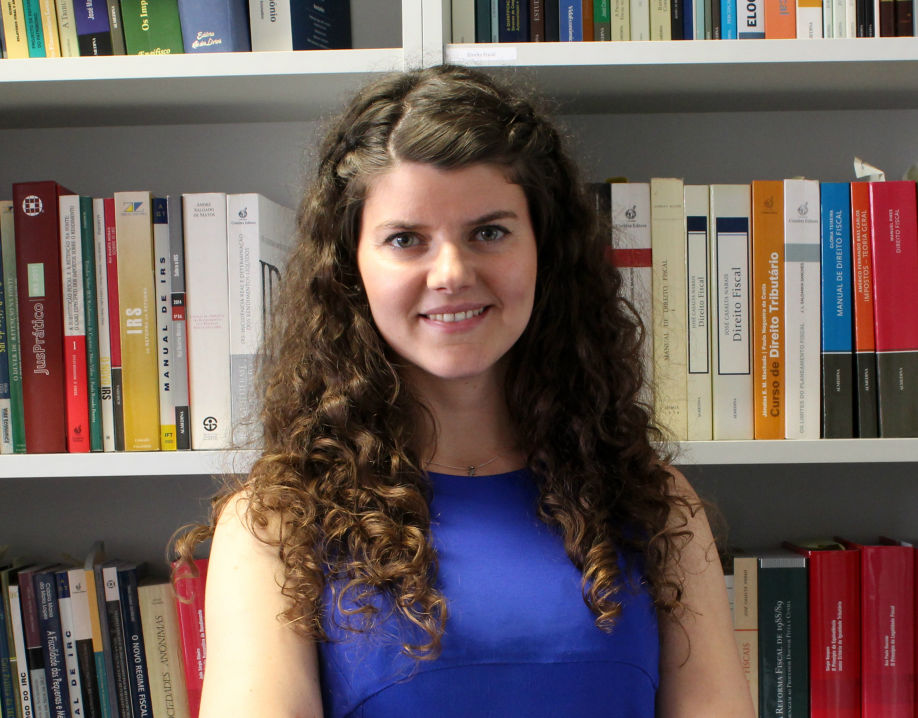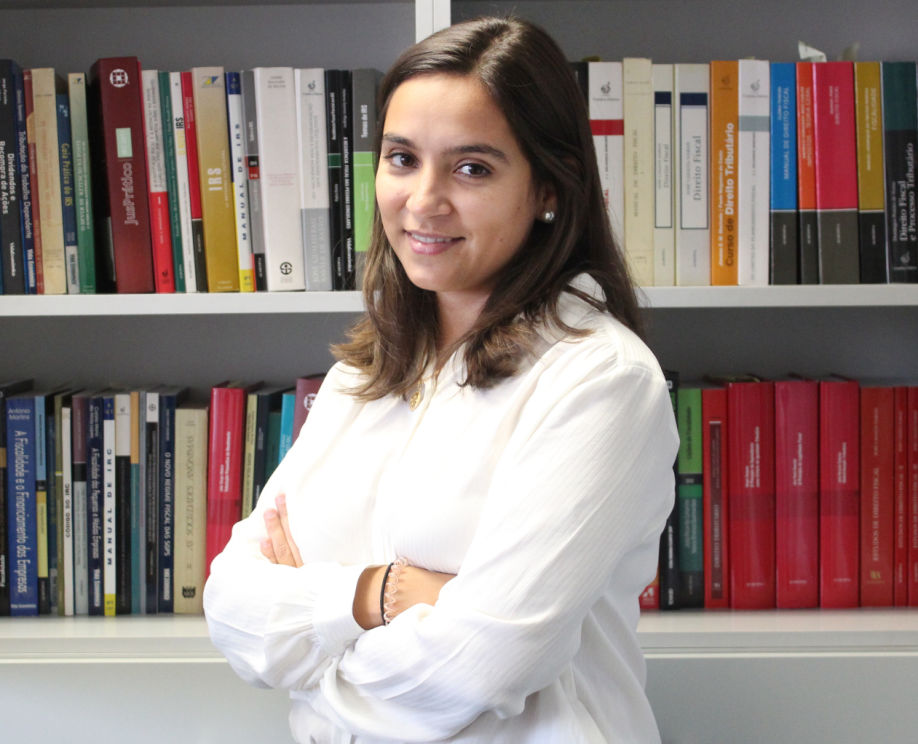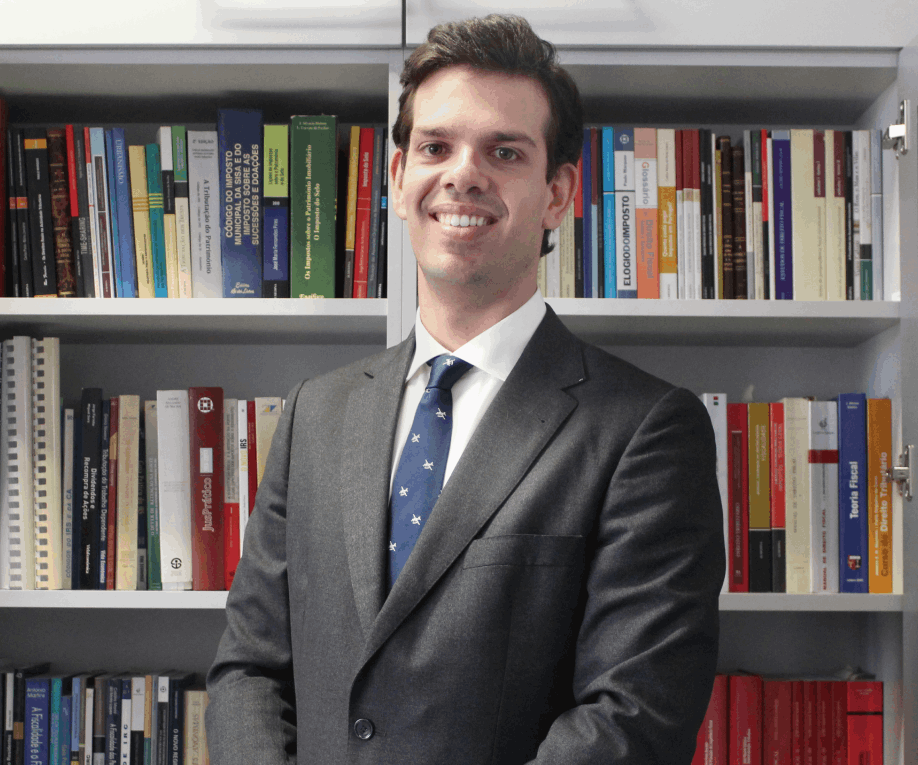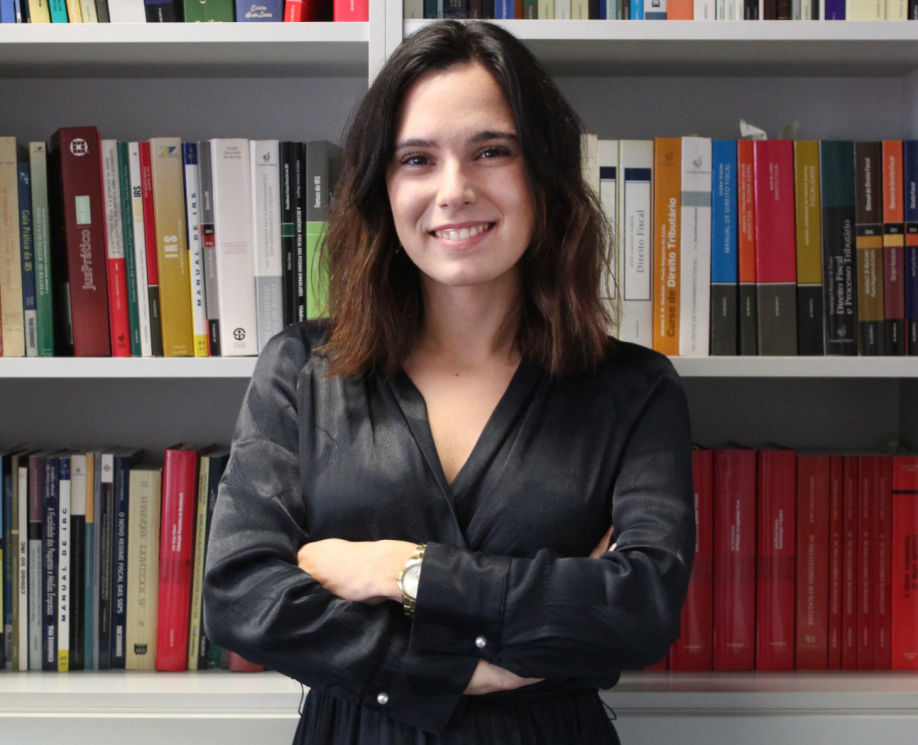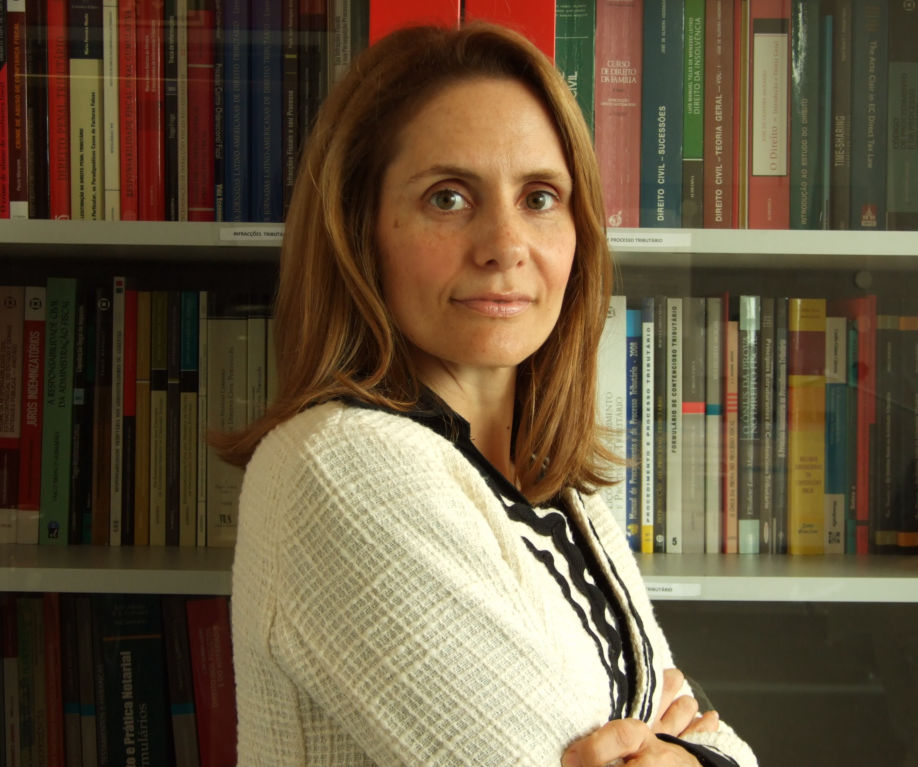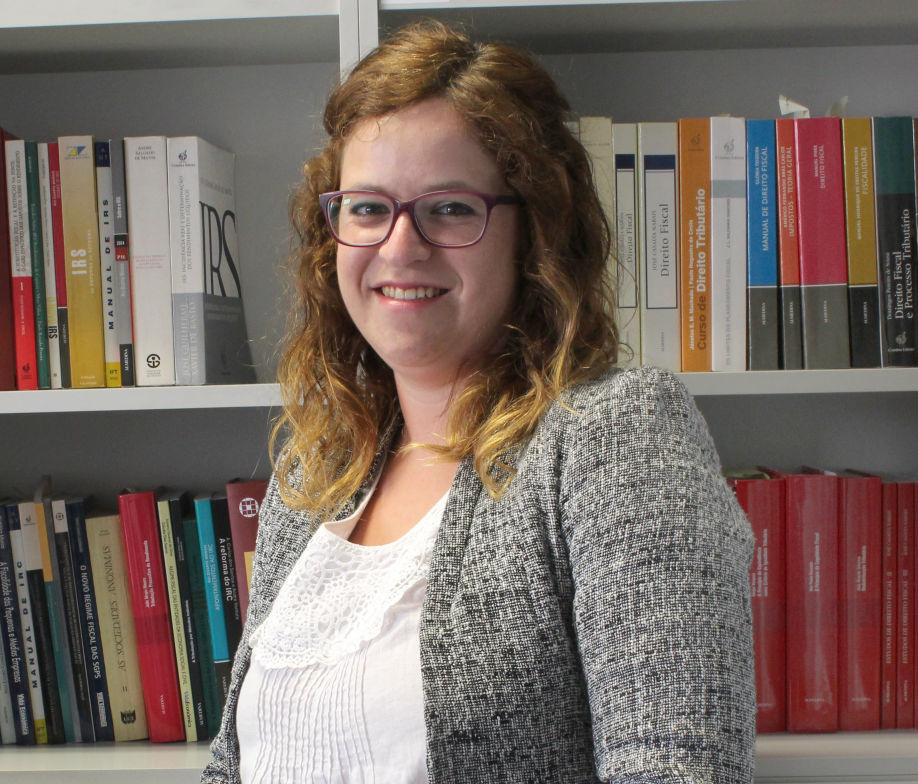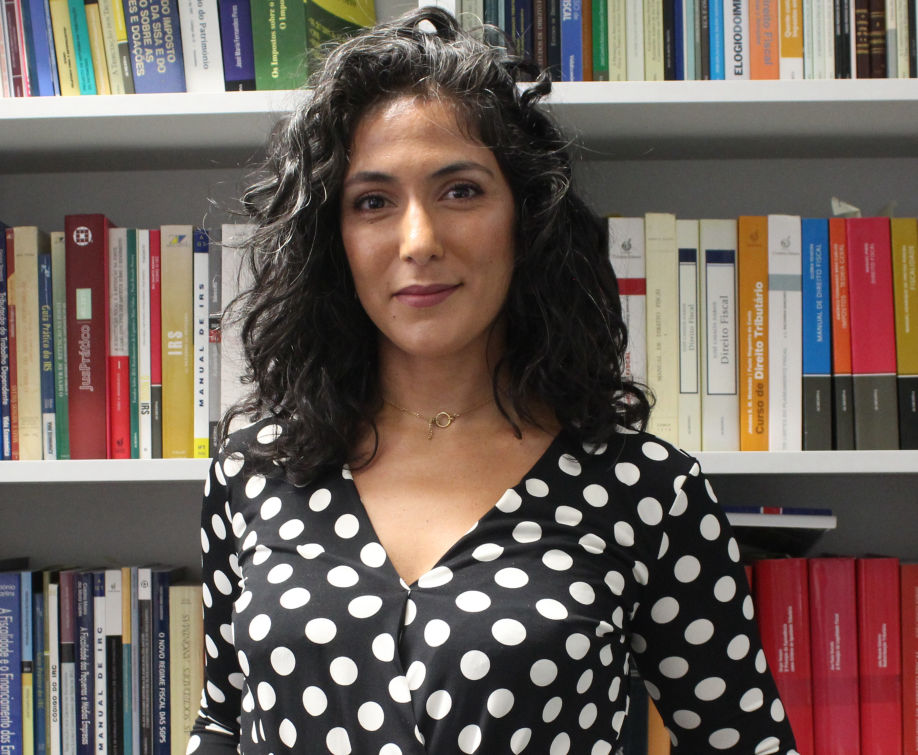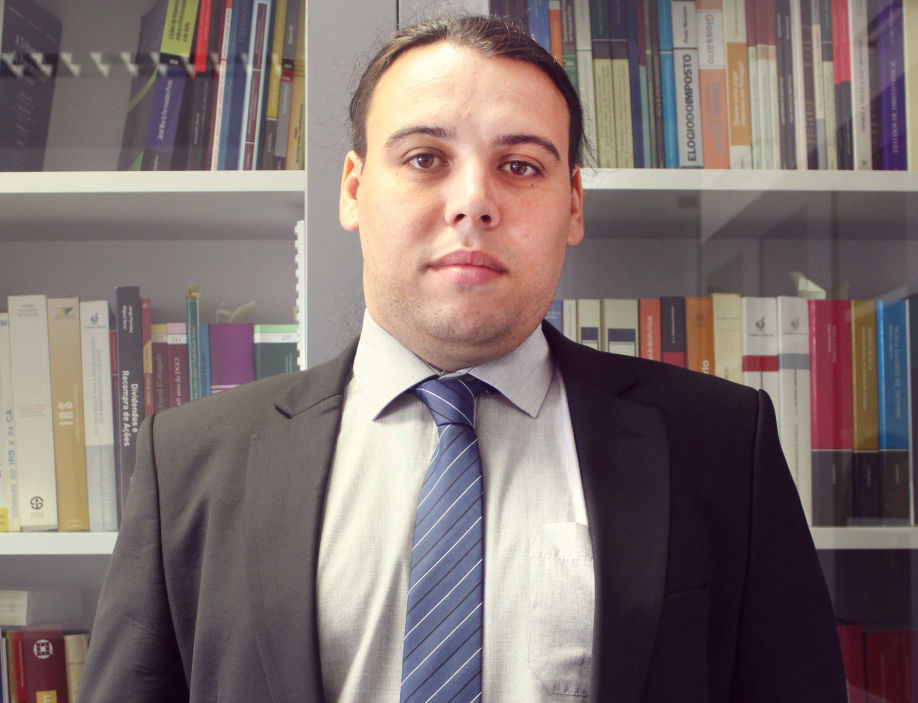RPBA is a Portuguese tax law boutique firm,
paying attention to every detail and willing to unravel the most intricate tax challenges.
believes that needs in this field are better served by a small pool of young, dynamic and talented individuals than by a vast number of average consultants.
RPBA practice areas are Tax Law and, on an ancillary basis, Company Law, Real Estate Law and Contract Law,
especially due to our involvement in tax structuring and restructuring of operations and corporate groups.
The fact that we have deliberately narrowed our service offer to tax and tax related issues does not mean a necessary restriction of our Client base. Indeed, taxation permeates every aspect of contemporary life, and accordingly each person is prone to be a taxpayer of some sort.
Tax is one of the most complex and ever evolving areas of knowledge. It encompasses law, microeconomics, public finance, accounting and financial computation. Tax advisory work is an elusive designation that may comprise:
Tax Compliance, Tax Auditing, Tax Consulting, Tax Opinions, Tax Legislation Design, Tax Structuring, Tax Litigation, Tax Crime Defense.
International, European and Domestic Tax Law.
Taxes as diverse as those on income, wealth, real estate transfer and ownership, value-added, energy, cars, gifts and inheritance, stamp duties, excises, customs duties, as well as social security contributions and fees.
To deal with the challenge of every taxpayer being a potential Client, RPBA has to be very selective,
only taking up work that is of interest, not necessarily on financial grounds, but due to the intellectual challenges it presents, and that fits what it believes it can do best: Tax Consulting, Tax Opinions, Tax Legislation Design, Tax Structuring, Tax Litigation and Tax Arbitration, either on International, European (including State Aid) or Domestic Tax Law, with a focus on income and real estate taxes as well as on Social Security. Nevertheless, our thorough and inside knowledge of the Portuguese and International tax arena enables us to provide Clients with the best recommendations in other jurisdictions and in those tax practice areas that are outside our core niches.
• Foreign investment and disinvestment structuring in Portugal and Portuguese investment and disinvestment structuring abroad, in particular in real estate;
• “Un-offshoring” of structures;
• Restructuring of Portuguese and international economic groups (mergers, spin-offs, asset contributions, share for share exchanges, tax grouping, European economic interest groupings, unincorporated silent partnerships and other joint ventures);
• Business restructuring (v.g. from distribution to commissionaire), cost contribution, sharing and service agreements and structuring of income flows and transfer pricing within Portuguese and international economic groups, namely interest, service fees and royalties.
• Residence planning (in particular through the Portuguese non-habitual resident and golden visa regimes or through similar foreign regimes). We have relevant experience with Polish, North American, Swiss, Swedish, Brazilian, French and UK nationals or former residents, among others. For more information on our Residence Planning Services, please visit our microsite: www.nonhabitualtaxresident.com
• Secondment of Portuguese nationals abroad and of foreigners in Portugal;
• Optimization of the private wealth of high net worth or income individuals.
• Before both the tax administration and the judicial, arbitration and constitutional courts, especially in the areas of Corporate Income Tax and real estate taxation, namely, as far as the latter is concerned, regarding the Personal Income Tax regime for rollover relief of capital gains deriving from the sale of immovable property used as an habitual abode.
• Rural land consolidation;
• Holding structures;
• Leases;
• Investment;
• Development.
• Financial products, including life insurance and certificates; regimes of communication of cross-border transfers and offshore accounts as well as of bank secrecy waivers; disclosure, tax optimization and reduction of compliance costs associated with offshore income.
• Structuring and managing, either on the real estate or on the financial angle, by the use of holding and operational companies, trusts, private and family foundations, life insurance, wills, shareholders’ agreements and family protocols.
For more information on our Family Office Services, please visit our microsite: www.familyofficeportugal.com
RPBA Clients' main sectors of activity are real estate (encompassing all its subsectors like shopping centers and retail parks, construction and development, hotels and leisure), manufacturing industry and commercial distribution (especially of pulp, paper and beverages), telecommunications and information technology, holdings and finance.
RPBA Clients include domestic and international corporate groups; family-owned and small and medium-sized enterprises with national and international operations; auditing, management and accounting companies and other law offices; high net worth or income individuals and families; foundations, public entities and non-profit organizations.
Besides corporate bodies, RPBA serves individuals, focusing on active life individuals like expatriates (serving digital nomads, poker players, financial traders and investors in crypto assets), skilled professionals, entrepreneurs, real estate buyers or sellers, normally aged between 30 and 60, on family office management and on estate and succession planning of elder individuals.
In order to maintain its profile and niche tax practice areas without compromising its ability to offer clients a full tax service, as well as for a second partner review in projects that comprise an added degree of complexity and/or risk, RPBA has selective tax associations (which do not impair other sporadic collaborations) with like-minded individuals and well-known professionals in these other fields. In this regard we highlight Dr. Raul Soares da Veiga, Partner and Lawyer at Raul Soares da Veiga & Associados – Sociedade de Advogados, R.L. for Tax Crime Defense.
RPBA has associations with other premier law offices, and relevant joint work experience with the leading Madeira Free Zone management companies, the big four auditing and consulting firms, several property appraisers, two preeminent statutory auditors and three accounting firms, which enable it to provide its Clients with quality services or recommendations in other relevant legal and non-legal areas.
To unravel tax problems thoroughly and innovatively and to contribute for the advancement and welfare of taxpayers.
Respect for the Clients’ trust and best interests, assuring the confidentiality of their identity, data, and other information.
Uncompromising excellence on problem-solving and implementation of solutions.
Personalized attention, undivided dedication and full availability to carefully selected Clients.
Understanding the uniqueness of our professionals and providing personal and professional growth opportunities for them.
RPBA Envisioned Future is to become:
A law firm recognised in the professional and academic milieus as leader in finding solutions for the most intricate tax questions.
A tax law boutique serving other lawyers.
A place of venture in quality, performance, and personal character in which lawyers and Clients through a continuous common effort, simultaneously preserving our core principles and fostering entrepreneurship, achieve mutual fulfilment in the search of innovative tax solutions.
Use our best judgment in all situations.
There are no other rules.
For this, RPBA has a small but highly qualified team where each lawyer is first and foremost valued as a person and as a unique individual, being provided with an e-mail address on a first name basis.
Ricardo, Catarina, and Rita have met at the Lisbon University School of Law, where all have graduated. They share trust, mutual admiration, and of course a passion for Tax Law. In their view, an independent boutique law firm enables them to be not merely tax professionals but full tax personas - incorporating studying, pro bono, publishing, teaching and association and public activities in their lives -, and to better serve Clients in need of tax talent.
Subsequently, Ana Isabel, a Ricardo’s former student in the Licenciatura from Lisbon University School of Law, Lisete from Nova University of Lisbon School of Law, and Carolina from University of Coimbra Law School, have joined the team.
More recently, Alexandra Lopes, a Ricardo’s former student in the Master’s Degree in Tax Law at the Catholic University, Ana Patrício, from Nova University of Lisbon School of Law, António, a Ricardo’s former student in the Master’s Degree in Tax Law at the Catholic University and Maria, also from Nova University of Lisbon School of Law, strengthened this group, with their talent and skills.
RPBA's legal team also relies on the knowledge, support and drive of Isabel, Filipa, Sara, Marta Rêgo and José Soares, which enabled a project to be converted into a reality.
Please find on the side the persons of reference and primary contact for each RPBA Expertise Service.
He is recognised as a Specialist Lawyer in Tax Law by the Portuguese Bar Association since 23 December 2004.
He has extensive experience as a Tax and Legal Adviser and as an Economy and Tax Law Teacher at Graduate and Post-Graduate Level on Law and Management Schools, namely at the Lisbon University School of Law, where he was a Teaching Assistant from 1994 up to 2007 and where he has obtained his Licenciatura in Law with a final grade point average of 16/20 in 1995 and his Master of Law (LL.M.) with a final grade point average of 18/20 in 2003.
He was formerly Aid to the Secretary of State of Tax Affairs in the Ministry of Finance in Portugal (2001-2002) and International Tax Services Manager at Ernst & Young (2000-2001), having started his professional career at Arthur Andersen (1995-1997).
He has been four times Portuguese National Reporter to the International Taxation "High Level Scientific Conferences" organized by the Vienna University of Economics and Business Administration and supported by the European Commission.
He was the Portuguese national reporter to Subject 1 - Cross-border business restructuring, of the 2011 Paris IFA Congress.
In 2009 he was appointed by the Portuguese Secretary of State of Tax Affairs as a member of the Sub-Group on The Reform of the Income Taxes, of the Group on the Study of Tax Policy, Competitiveness, Efficiency and Justice of the Tax System.
In 2007 he was appointed by the Lisbon University School of Law as the independent member of the selection jury of the Directorate-General of Taxes for the Heads of Division of the Personal Income Tax, Corporate Income Tax, Value-Added Tax and Municipal Property Tax.
He is a frequent speaker at tax conferences in Portugal and abroad, a commentator of tax issues for Portuguese TSF radio station and Portuguese economic daily newspapers Jornal de Negócios and Diário Económico, among others, and has published more than thirty academic articles and papers, several newspaper articles, and a compendium of Economic Legislation of Guinea-Bissau. He is also co-editor of a IBFD European Tax Law book (see Publications).
He has knowledge of the legal and tax systems of Cape Verde (where he has lectured at a Post-Graduation on Taxation organized by the Fundação Direito e Justiça and the Lisbon University School of Law) and Guinea-Bissau (where he was Senior Lecturer and Coordinating Teacher to the Junior Degree in Law at the Bissau School of Law between October 1997 and September 1998).
He is a member of the Editorial Board of Portuguese tax review Fiscalidade, of the Consulting Board of Portuguese tax review Revista de Finanças Públicas e Direito Fiscal and of the Portuguese and International Fiscal Associations since October 1998.
► 16/06/2014 / 148/2013-T / Corporate Income Tax (IRC) / Royalties’ deductibility, burden of proof, transfer pricing, deductibility of losses on the act of a company partition (Language: Portuguese)
► 19/12/2014 / 200/2014-T / Personal Income Tax (IRS) / IRS – GAAR (General Anti-Abuse Rule) (Language: Portuguese)
► 25/05/2016 / 663/2015-T / Corporate Income Tax (IRC) / IRC – court of arbitration jurisdiction; tax deduction of financial payments; Administrative ruling 7/2004 of the Corporate Income Tax Management Division (DSIRC); article 32 (2) of the Tax Incentives Statute (EBF) (Language: Portuguese)
► 15/07/2016 / 648/2015-T / Corporate Income Tax (IRC) / IRC (Corporate Income Tax) – RETGS (Special Tax Regime for Corporate Groups); tax benefits to venture capital firms; after-rate deductions for corporate group; court of arbitration jurisdiction (Language: Portuguese)
► 28/11/2016 / 7/2016-T / Corporate Income Tax (IRC) /IRC – Forfeiture of the right to issue a tax assessment (Language: Portuguese)
► 16/02/2017 / 239/2016-T / Corporate Income Tax (IRC) / CIT – Forfeiture of the right to issue a tax assessment. Lack of notification. Indemnity for undue guarantee. (Language: Portuguese)
► 14/07/2017 / 375/2016-T / Corporate Income Tax (IRC) / CIT – Compulsory tax assessment – Permanent establishment – Proof of activity (Language: Portuguese)
► 12/10/2017 / 545/2016-T / Corporate Income Tax (IRC) / CIT – Autonomous Taxation – Bonus paid to managers (Language: Portuguese)
► 05/04/2017 / 553/2016-T / Corporate Income Tax (IRC) / CIT – Autonomous Taxation. Charges with vehicles. Motorcycles (Language: Portuguese)
► 23/06/2017 / 621/2016-T / Corporate Income Tax (IRC) / CIT – Compulsory tax assessment - Permanent establishment - Proof of professional activity (Language: Portuguese)
► 10/04/2018 / 333/2017-T / Corporate Income Tax (IRC) / CIT – Tax deductibility of financial charges – Administrative Ruling 7/2004 of the Management Services of Corporate Income Tax (DSIRC) - article 32 (2) of Tax Incentives Statute (EBF) (Language: Portuguese)
► 10/07/2018 / 621/2017-T / Corporate Income Tax (IRC) / CIT – Expense deductions (Language: Portuguese)
► 04/12/2018 / 471/2017-T / IRC – article 32 (2) of Tax Incentives Statute (EBF) – financial charges – Holding Companies (Language: Portuguese)
Ana Rita Pereira achieved the Licenciatura in Law, in the Economics major of the Lisbon University School of Law, with a final grade point average of 15/20 in 2007.
From November 2006 to July 2008 she attended part-time the Post-Graduation in Tax Law of the Institute of Economic, Finance and Tax Law of the Lisbon University School of Law, with a final grade point average of 15/20.
She has completed in 2014 an Executive Master in Advanced Accounting and Taxation at the ISCTE-IUL Indeg Business School with a master thesis on the taxation of the reduction of company share capital.
She is a lecturer in the Post-graduation in Real Estate Investments of the INDEG-ISCTE Business School, since 2019.
She is a member of the Portuguese Fiscal Association and of the International Fiscal Association.
Ana Isabel Correia joined the firm in June 2018 and she is a partner since January 2021.
Ana has a long experience as a tax lawyer, advising domestic and multinational groups on contentious and non-contentious tax issues, mainly financial institutions and insurance companies. Her activity is focused on tax consultancy on the most diverse taxes, often involving European Union law and the application of international conventions, in-depth legal opinions to private and public entities, along with complex tax litigation.
She achieved the Licenciatura in Law, in the Legal and Economics major of the Lisbon University School of Law, with a final grade point average of 16/20 in 2005.
She holds a postgraduate degree in Tax Law of the Institute of Economic, Finance and Tax Law of the Lisbon University School of Law and a postgraduate degree in Administrative and Tax Justice from the University of Coimbra Law School.
She regularly lectures tax modules in the Advanced Post-graduation in Corporate Law and also in the Post-graduation in Insolvency and Corporate Recovery Law of the Lisbon University School of Law.
Previously, she was an intern at Gonçalves Pereira, Castelo Branco e Associados law firm and then joined the Tax Law department of Garrigues Portugal.
Lisete Santos Rodrigues achieved the Licenciatura in Law from the Nova University of Lisbon School of Law in 2010, with a final grade point average of 17/20.
In 2011 she attended the curricular part of the Master's Degree in Business Legal Sciences at the same University, with a grade point average of 17/20.
She completed in 2014 the Post-Graduate course in Intellectual Property Law from the Lisbon University School of Law and the Portuguese Association of Intellectual Property - APDI, with a final point average of 17/20.
In 2017 she completed the Post-Graduate course in Tax Law with specialization on Advanced Taxation of International Transactions (European and International Tax Law) from the Portuguese Catholic University of Lisbon, with a final grade point average of 15/20.
Between 2012 and 2018 she collaborated with the law firm Serra Lopes, Cortes Martins & Associados – Sociedade de Advogados, R.L., providing services in Corporate Law, Intellectual Property Law, Tax Law and Tax Litigation.
She is a member of the Portuguese Bar Association since 2015.
Ana Cristina Amaral Patrício achieved the Licenciatura in Law from the Nova University of Lisbon School of Law in 2011, with a final grade point average of 16/20.
In 2015 she concluded the Master's Degree in Traditional Law Sciences at the Portuguese Catholic University of Lisbon, with a grade point average of 17/20.
She completed in 2016 the Post-Graduate course in Public and Listed Companies and from the Portuguese Catholic University of Lisbon.
In 2018 she completed the Post-Graduate course in Banking, Stock Market and Insurance Law from the Institute of Banking, Stock Market and Insurance Law of Coimbra University Law School.
Between 2013 and 2018 she cooperated with PricewaterhouseCoopers / AG – Assessoria de Gestão, Lda., providing services in Corporate Law, Labour Law, Civil Law, debt recovery and Insolvency Law.
Between 2019 and 2020 she collaborated with Rogério Alves & Associados – Sociedade de Advogados, SP, RL., in the area of Business Law, providing services in Corporate Law, Real Estate Law and Labour Law.
In 2021 she completed the Post-Graduate Course in Corporate Law from the Portuguese Catholic University of Lisbon.
She is a member of the Portuguese Bar Association since 2015.
António Freitas Vilar holds a Licenciatura in Law from the Faculty of Law of the Portuguese Catholic University in Lisbon (2016), with a final grade point average of 15/20.
In 2018 he concluded the Master's Degree in Tax Law at the same University, with a final grade point average of 16/20.
Between 2017 and 2021 he collaborated with Garrigues Portugal, providing services in Tax Law.
In 2021 he joined Sovos Portugal, providing services in Tax Law.
He is a Member of the Portuguese Bar Association since 2019.
Alexandra Esteves Lopes achieved the Licenciatura in Law from the University of Lisbon School of Law in 2012.
In 2014 she concluded the Master's Degree in Tax Law from the Portuguese Catholic University of Lisbon.
Between 2012 and the beginning of 2020 she collaborated with PwC (PricewaterhouseCoopers Tax Services TLS, Lda.) as senior tax associate, providing tax services, namely on Personal Income Tax, Social Security and international taxation.
Carolina Silva Esteves obtained, in 2018, a Law Degree from Faculdade de Direito da Universidade de Coimbra.
In 2020, Carolina completed the teaching component of the Master's Degree in Law and Legal Science, specializing in Tax Law, at Faculdade de Direito da Universidade de Lisboa.
Between 2017 and 2019, she completed summer internships at the Courts of Justice of Peace of Carregal do Sal, Mangualde and Nelas, at the Coimbra Finance Department and at the RFF Law Firm – Rogério Fernandes Ferreira & Associados.
Carolina joined RPBA in 2020 as a jurist, having started her internship for the Bar Association in 2021, at the same office.
Between 2020 and 2021, she attended the “Wolf Theiss Crypto Academy, Cryptoassets and blockchain”, a Short Course on the topic “Multilateral Instrument – Double Taxation Conventions and BEPS”, taught by the Universidade Católica Portuguesa and the “Online Program in International Tax Law , Advanced Subjects Course”, taught by the International Tax Center (ITC) Leiden and concluded in 2024 the E-Course “Tax Aspects Relative to the International Mobility of Individuals” by Universidade Nova de Lisboa.
Carolina is a lawyer registered with the Bar Association since 2024.
And is a member of the Portuguese Tax Association and the International Tax Association.
Maria Viegas da Cunha achieved the Licenciatura in Law from the Nova University of Lisbon School of Law in 2019, with a final grade point average of 14/20.
She is a Lawyer, member of the Portuguese Bar since 2022.
Between 2022 and 2024 she collaborated with Valadas Coriel & Associados and Valente Veiga & Associados Law firms providing services in Mass Litigation, Corporate Law and Real Estate Law.
Maria is currently attending the Master's Degree in Labour and Corporate Law by ISCTE - University Institute of Lisbon.
Catarina Pereira Ventura is a graduate of the Lisbon University School of Law and a qualified lawyer by the Portuguese Bar Association. In 2010 she obtained the Diploma in Translation of the Institute of Linguists. She specializes in legal translation work.
Isabel Magro is a graduate of Business Management of the Lusíada University.
She has worked since 1991 on human resources, administrative, computer and financial management in both private and public sectors.
Filipa Coelho Ferreira achieved the Licenciatura on Secretary and Business Communication, at the Europeia University - Laureate International Universities (formerly ISLA Campus Lisboa), with a final grade point average of 15/20 in 2011.
Since 2011 she works as a secretary, administrative and executive assistant.
Sara achieved her Licenciatura in Advertising and Marketing in 2017, from Escola Superior de Comunicação Social in Instituto Politécnico de Lisboa, with the final average point of 14/20.
Throughout her career she has worked in human resources and also as a secretary and administrative assistant.
Marta Rêgo achieved in 2009 the Licenciatura in Audiovisual and Multimedia in the School of Communication and Media Studies, with a final grade point average of 13/20.
From September to December 2010 she was a Trainee in Digital Marketing for DDB Portugal and successfully completed the internship with a final grade point average of 19/20.
In 2011 she completed a Master’s Degree in New Media and Web Practices with a final grade point average of 16/20 at the Nova University of Lisbon, with the dissertation: “The Importance of Social Networks in the development of a connection between Brands and Consumers”.
In 2012 she obtained an Advanced Postgraduate Degree in Digital Marketing at the Portuguese Institute of Marketing Management, with a final grade point average of 16/20.
Between 2013 and 2014 she taught Digital Marketing in a training company.
She is a certified trainer by the Instituto de Emprego e Formação Profissional (IEFP).
She is currently a PhD student in Communication Sciences at the Nova University of Lisbon, where she obtained the Advanced Study Diploma (DEA) with a specialization in Strategic Communication, with a final grade point average of 16/20.
José Soares began his professional career in 2007, as IT technician/seller at Algardata, S.A.. In 2010, he moved on to IT services’ provision on his own account, both for private individuals and for business entities. He also cooperated with other IT projects.
In addition to his present assignment at RPBA, José’s current professional activity covers information systems', networks' and user' management, as well as servicing and maintenance of IT equipment and also 3D modelling and printing.
RPBA brings together here a multitude of informative content, such as publications, articles, presentations, among others, designed and developed by our team.
Given the fickleness of today’s tax world it is not easy to follow up on current issues and on the best strategies.
Our newsletters and presentations provide specific information with added value.
RPBA's library includes the complete collection of the Portuguese reviews Fiscalidade, Ciência e Técnica Fiscal, TOC, Contabilidade e Gestão, Finanças Públicas e Direito Fiscal, among others, totalling around 800 volumes and more than 2200 monographs.
In this segment you will find our lawyers' list of publications and the respective link to the publishers where the works may be acquired, as well as some of their academic articles, among others.
Check out the participation of our lawyers in newspaper articles and blogs on the most varied tax topics, from real estate to investment funds, among other subjects.
We regularly release informative notes on a wide range of national and international tax matters. Keep up to date by reading our newsletters.
For us it is important to generate content and disseminate information that can help Clients, partners or peers. To this end, we created presentations that address relevant tax issues in a detailed, clear and accessible manner.
There are contents that are better expressed through images, so RPBA uses infographics as a vehicle for transmitting information. Check out our approach on illustrating the most varied tax issues.
This section brings together a set of tax jurisprudence updates, only available in Portuguese.
Check our alerts on the most varied tax topics and subscribe to our Mailing list so you never miss our latest updates.
RPBA's meeting and reading room is fully equipped for conferences and presentations and bears 14 people. This room holds a substantial part of our wide library which comprises more than 2200 monographs, particularly in the areas of corporate and domestic, European and international tax law, all catalogued in an Access database with a unique identification number (ID) and a QR code. This innovative digital system provides, through the use of any mobile device, the book identification (Title / Author / Publisher / Editor / ISBN / No. of pages / Etc.) and also the specific location for its proper storage.
RPBA's library also includes the complete collection of the Portuguese reviews Fiscalidade, Ciência e Técnica Fiscal (since 1984), TOC, Contabilidade e Gestão, Finanças Públicas e Direito Fiscal, Direito das Sociedades em Revista, Revista de Direito das Sociedades and the barely complete collection of Fisco, among others, totaling around 800 volumes. Our library is an indispensable source of knowledge and an important place for our lawyers' study and research. Access to our library is restricted to members of RPBA.
You will find here our lawyers' list of publications and the respective link to the publishers where the works may be acquired, as well as some of their academic articles.
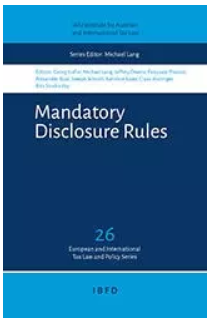
Mandatory disclosure Rules in Portugal
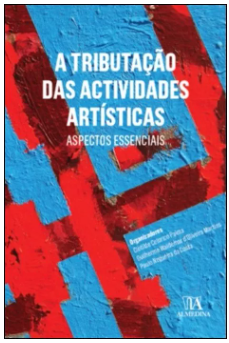
O «artista» à luz do Código do Imposto sobre o Rendimento das Pessoas Singulares e das Convenções para Evitar a Dupla Tributação
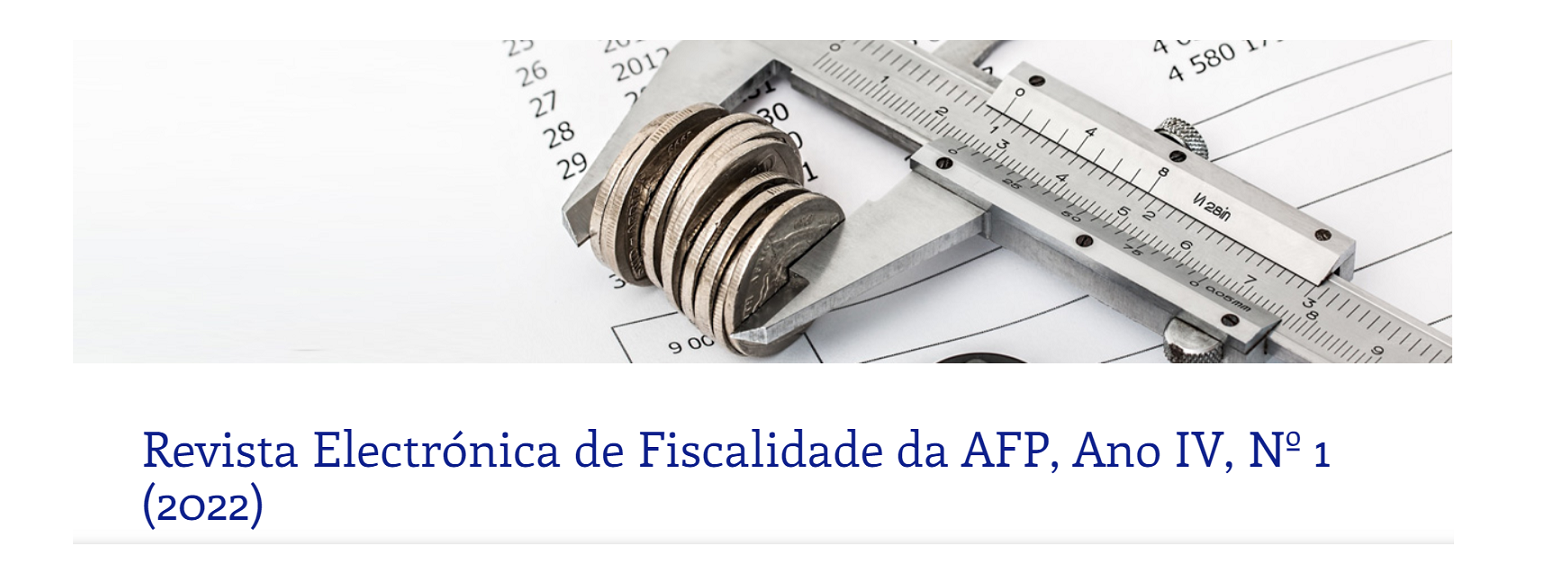
Taxation of Capital Gains Derived from the Alienation of Shares: The Issue of the Qualification of Shares as Immovable Property under the Mozambique and Italy Double Taxation Convention
Check out RPBA's participation in some journalistic articles and blogs. Search for information by year, click on the text and access the news link.
New article from Ana Rita Pereira (RPBA's Partner), Lisete Santos Rodrigues and António Freitas Vilar (RPBA's Associates) for the Portuguese blog "Out of the box" on the reduced VAT rate on urban rehabilitation works. 09-12-2024
In this article (in Portuguese) for the Portuguese real estate blog, the current wording of verba 2.23 was analyzed, and namely the transitional rule introduced by "Lei Mais Habitação" regarding new construction, and the lack of uniformity in arbitration decisions concerning the requirements that the urban rehabilitation works must comply with. To read the article on the blog, click
here.
New article from Ana Rita Pereira (RPBA's Partner), Lisete Santos Rodrigues and António Freitas Vilar (RPBA's Associates) for the Portuguese blog "Out of the box" on "Legal updates on the taxation of local accommodation vs traditional rental". 23-09-2024
This article (in Portuguese) summarizes the main differences in the tax treatment of local accommodation and traditional rental, in the Income Taxes (IRC / IRS), Value Added Tax (VAT) and Stamp Tax (IS).
To read the article on the blog (in PT) click
here.
New article from Ana Rita Pereira (RPBA's Partner) and Lisete Santos Rodrigues (RPBA's Associate) for the Portuguese blog "Out of the box" on "Aggravated taxation on properties owned or acquired by entities resident in backlisted jurisdictions". 17-06-2024
In this article, Ana Rita Pereira and Lisete Santos Rodrigues, responsible for real estate issues, mention specifically the application of aggravated taxes under Municipal Property Transfer Tax ("IMT") and Municipal Property Ownership Tax ("IMI").
To read the article on the blog (in PT) click
here.
Consult our regularly updated Newsletters, with informative content on the most varied national and international tax topics. Click on their title to read them.
Check below the presentations created by RPBA team that address relevant tax issues in a detailed, clear and accessible way. Click on the icons to open the contents.
RPBA team created these infographics in order to facilitate the visualization and understanding of various topics in the tax universe. Discover all of them by clicking on the images below.
Updated on 28.10.2024
Language: English
Updated on 28.10.2024
Language: Portuguese
Updated on 12.04.2024
Language: English
Updated on 09.11.2022
Language: English
Here is a set of tax case law updates between 2015 and 2018 for consultation, available only in Portuguese. Search for each one by clicking on the year of publication.
• Boletim de Jurisprudência Fiscal n.º 3 de 2018 - Edição Especial (Actualização da Edição n.º 1/2016) - Impactos fiscais da sucessão e partilhas de heranças (Julho / Agosto / Setembro / Outubro / Novembro / Dezembro)
• Boletim de Jurisprudência Fiscal n.º 2 de 2018 (Actualização da Edição n.º 5/2016) - Tributação das mais-valias derivadas da alienação de imóveis situados em Portugal - enquadramento jurídico dos regimes gerais de tributação dos residentes / não residentes (Abril / Maio / Junho)
• Boletim de Jurisprudência Fiscal n.º 1 de 2018 (Actualização da Edição n.º 4/2016) - Permuta de partes sociais, neutralidade fiscal e normas anti-abuso (Janeiro / Fereveiro / Março)
• Boletim de Jurisprudência Fiscal n.º 4 de 2017 (Actualização da Edição n.º 7/2015) - Intersecção entre os regimes dos preços de transferência e da cláusula geral anti-abuso - (Outubro / Novembro / Dezembro) - Actualizado a 17.01.2018
• Boletim de Jurisprudência Fiscal n.º 3 de 2017 (Actualização da Edição n.º 3/2016) - Regime do reinvestimento em IRS para a alienação e aquisição de habitação própria e permanente - (Julho / Agosto / Setembro) - Actualizado a 13.10.2017
• Boletim de Jurisprudência Fiscal Edição n.º 2/2017 (Actualização da Edição n.º 4/2015) - Aplicação do regime dos preços de transferência a alienações, pelo accionista, pessoa singular, de acções de uma sociedade a outra - (Abril / Maio / Junho) - Actualizado a 05.07.2017
• Boletim de Jurisprudência Fiscal Edição n.º 1/2017 (Actualização da Edição n.º 2/2016) - O Tratamento Fiscal dos Seguros de Vida unit linked - (Janeiro / Fevereiro / Março) - Actualizado a 13.04.2017
• Boletim de Jurisprudência Fiscal n.º 6 de 2016 - Tributação da alienação de direitos reais menores relativos a participações sociais em sede de IRS (Novembro / Dezembro) 29.12.2016
• Boletim de Jurisprudência Fiscal n.º 5 de 2016 - Tributação das mais-valias derivadas da alienação de imóveis situados em Portugal - enquadramento jurídico dos regimes gerais de tributação dos residentes / não residentes (Setembro / Outubro) - Actualizado a 26.07.2018
• Boletim de Jurisprudência Fiscal n.º 4 de 2016 - Permuta de partes sociais, neutralidade fiscal e normas antiabuso - (Junho / Agosto) - Actualizado a 03.04.2018
• Boletim de Jurisprudência Fiscal n.º 3 de 2016 - Regime do reinvestimento em IRS para a alienação e aquisição de habitação própria e permanente - (Maio / Junho) - Actualizado a 13.10.2017
• Boletim de Jurisprudência Fiscal n.º 2 de 2016 - O Tratamento Fiscal dos Seguros de Vida unit linked - (Março / Abril) - Actualizado a 13.04.2017
• Boletim de Jurisprudência Fiscal n.º 1 de 2016 - Tratamento Fiscal das Partilhas em sede de IRS, IMT e Imposto do Selo - (Janeiro / Fevereiro) 16.02.2016
• Boletim de Jurisprudência Fiscal - Edição n.º 9 de 2015 (Novembro) – 2.12.2015
• Boletim de Jurisprudência Fiscal - Edição n.º 8 de 2015 (Outubro) - 30.10.2015
• Boletim de Jurisprudência Fiscal - Edição n.º 7 de 2015 (Setembro) - 01.10.2015
• Boletim de Jurisprudência Fiscal - Edição n.º 6 de 2015 (Agosto) - 31.08.2015
• Boletim de Jurisprudência Fiscal - Edição n.º 5 de 2015 (Julho) - 30.07.2015
• Boletim de Jurisprudência Fiscal - Edição n.º 4 de 2015 (Junho) - 16.06.2015
• Boletim de Jurisprudência Fiscal - Edição n.º 3 de 2015 (Maio) - 21.05.2015
• Boletim de Jurisprudência Fiscal - Edição n.º 2 de 2015 (Abril) - 14.04.2015
• Boletim de Jurisprudência Fiscal - Edição n.º 1 de 2015 (Março) - 11.03.2015
RPBA publishes, frequently, of alerts on the most varied topics of current tax affairs, such as State Budget Law updates, non-habitual tax resident case studies, etc. Take a look and find out more through the button below.

NHR - Termination and Replacement regimes - Interested parties list - Outcome

EMPLOYEE STOCK OPTIONS: NEW TAX REGIME
In order to promote better environmental sustainability and reduce our ecological footprint, RPBA adopted the following policies:
► Recycling and separation of waste batteries and office consumables;
► Rational use of energy and paper;
► Efficient use of natural resources.
RPBA integrated several projects that reflect its social concern and community involvement. Through donations and solidarity based actions, RPBA supports and participates in several causes:
► Instituto da Cooperação Jurídica da Faculdade de Direito da Universidade de Lisboa (FDUL) – In 2018, RPBA made a book donation (with an estimated value of 1550.00 €) to the Institute of Legal Cooperation of the Lisbon University School of Law (Instituto da Cooperação Jurídica da FDUL). This donation, without any financial compensation, included a collection of Guinea-Bissau’s Official Bulletin (Boletim Oficial da Guiné-Bissau), a folder with spread legislation and other book titles regarding this country. Most of this spoil had been acquired in Guinea Bissau by RPBA's managing partner between October 1997 and September 1998, when he was a Senior Lecturer and Coordinating Teacher to the Junior Degree in Law at the Bissau School of Law.
► Solidary Survey - Following the completion of the annual Client Satisfaction Survey in 2016, RPBA had the initiative to revert 2 € to the Médicos do Mundo Association (Doctors of the World) for each completed feedback survey received. After accounting for the feedback received, RPBA made a donation of 200,00 €. To learn more about this campaign, please visit the website and the Facebook page of this Association.
► “Dar o que Sobrar” Campaign (“Surplus Donations” Campaign) – In 2014, RPBA joined this solidarity campaign organized by the Associação Médicos do Mundo (Doctors of the World Association) by collecting and donating surplus pharmaceutical drugs. Again in 2014 RPBA donated 2,500 euros to this association. To read more about these activities, please visit the site and the blog of this Association.
► Autismo EPE – RPBA supports the Autismo EPE project, namely by making available its Marketing and Communication area’s time and expertise. To learn more about this project, please visit their site.
► Associação CDR – Ciclismo e BTT – RPBA supported the project CDR – Ciclismo e BTT, an association that promotes the practice of sport among young people and adults through cycling.
► Pro-Bono – RPBA annually sets a number of hours for pro-bono activities. From 2014 to 2017 RPBA spent on those activities an average of 66 hours per year.
RPBA measures its performance and its quality by the success and satisfaction of its Clients. Accordingly, our commitment to them is thus translated by:
► Respecting their trust and best interests;
► Assuring the confidentiality of their identity, data, and other information;
► Solving problems with proficiency and implementing quality solutions;
► Attaining maximum mutual satisfaction in the search of innovative tax solutions;
► Regularly measuring Clients' satisfaction in order to ensure the continuous improvement of our services.
RPBA is the sum of its employees, and as such it has a real concern for the satisfaction of its team, while believing in the contribution of each individual in the construction of a greater good. To this end, RPBA promotes:
► Ongoing employee training achieved through annual investment in customized plans;
► Opportunities for personal and professional growth;
► Flexible approach to telecommuting, vacation, maternity or sabbatical leave, etc.;
► Constant investment in hygiene, safety and welfare at work. In 2014, there was an expansion of RPBA’s facilities with the creation of a new reception and waiting area and a spacious meeting room and library.
► Since 2021, RPBA has adopted a hybrid work system, allowing the employee to switch between face-to-face and remote work, contributing to greater autonomy and flexibility in working hours and reconciling professional and personal time.
Rua Abranches Ferrão, n.º 10, 9.º Piso, Fracção G, 1600-001, Lisboa, Portugal.
GPS Coordinates: Latitude: N38.773625 Longitude: W9.171181
geral@rpba.pt
Phone: +351 212 402 743
Fax: +351 21 010 38 98
Left to the main entry of the "Loja do Cidadão das Laranjeiras" and right to the Ismaili Center / Aga Khan Foundation; close to the Laranjeiras' subway station; there are two public parking spaces in a range of 100 meters, one underground at Rua Virgílio Correia, perpendicular to Rua Abranches Ferrão, and another in front of the Loja do Cidadão's back entry, underneath the Avenida Lusíada's viaduct. We also have parking space available in our building. Please request it in advance of any meeting.
